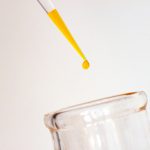Menopause and Peri Menopause
BackMenopause means the end of the menstrual cycle. It is diagnosed after going 12 consecutive months without a period. Menopause does not come at a concrete age, it is individual and will usually happen in 40s or 50s. The age at which menopause comes can be genetical. Women who have a family history of early menopause, will most likely experience it earlier too.
Even though menopause is very natural, it may come with symptoms and complications that interfere with everyday life and need to be relieved.
Perimenopause is the period before the Menopause – it lasts before the menopause begins. Perimenopause is a natural transition to menopause and will usually start several years before the menopause when the estrogen production slowly starts to decrease. It can start even in 30s or 40s. In the last 1 -2 years of perimenopause the estrogen levels fall even more faster and it is exactly when women will start to experience symptoms of menopause.
The perimenopausal symptoms, leading to menopause include:
● Irregular menstrual periods
● Dryness in the vagina
● Sweating at night
● Insomnia
● Mood swings
● Metabolic problems
● Hair Loss
● Drier skin
During perimenopause, it is very common to skip periods. Some women may skip it for more than a month but will get it back for several more months. The returned periods will usually be shorter than before.
A common question regarding the perimenopause is if it is possible to get pregnant during it. The answer is yes. There is definitely a drop in fertility but this does not exclude the chances.
Menopause, as already said is a natural process that is the result of a decline in the reproductive hormones. As woman ages, estrogen as well as progesterone production and levels drop. These hormones regulate menstrual cycle and with their decline, ovaries gradually stop to produce eggs. This whole process leads to the end of periods.
Menopause may not always come naturally. It can also be the result of chemotherapy, radiation therapy, primary ovarian insufficiency or hysterectomy.
Even though menopause itself does not need a special treatment, it is a huge change in the body and the decline of two very important hormones can increase the risk of certain medical conditions. Some women may face inability to contain urine, cardiovascular diseases, osteoporosis. A number of women will also gain weight unexpectedly. Dryness in the vaginal area lowers the libido and makes sexual experiences more problematic rather than pleasant.
For these reasons, it is recommended to consult with the doctor on regular basis an target the concrete issues that make everyday life problematic. The symptoms may need to be relieved either during perimenopause or after diagnosing menopause. Doctor may recommend taking antidepressants for handling mood swings, hormone therapy for relieving hot flashes, vaginal estrogen for relieving dryness and so on.
Smoking is known to accelerate menopause and on average, smokers will get it 1-2 years earlier than the non-smokers.
Irregular periods are normal during perimenopause, however, they are supposed to get shorter and lighter. Consider contacting the doctor immediately if the bleeding in the perimenopausal period gets too heavy, lasts longer than 7 days or occurs between the menstruations. This could mean that there are complications that need to be addressed and treated by the doctor.
